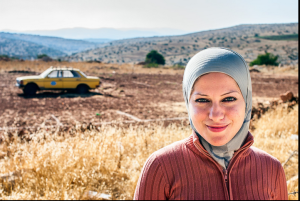Where Do We Go From Here, Egypt?
The revolution pandemic in the Middle East has simultaneously caused unity and division among different groups
ranging from government representatives, media organizations, businessmen, civil society, and neighboring nations. This is especially true in Egypt where numerous stakeholders were involved including: youth, political opposition parties such as the Muslim Brotherhood, the media—mainly represented by Al Jazeera and Al Arabiya, former President Hosni Mubarak, Vice President Omar Suleiman, the military, Google executive Wael Ghoneim, and numerous individuals in the private sector, government ministries, and the military.
This broad representation in the Egyptian revolution posits public diplomacy as an essential analytical lens for both those in Egypt and abroad to assess the implications of this revolution. While media coverage from Al Jazeera Arabic and English and Al Arabiya provided 24 hour coverage of the crisis for all 18 days of the revolution, these stations failed to properly analyze what was happening. This is an important distinction to make between media coverage vs. analysis. The uncertainty of how to analyze all that was happening within the country, especially in the first days of the revolution, has left the country thirsty for real leadership.
Rather than asking essential analytical questions during the protests, the media placed the revolution in a single frame: Mubarak’s departure from the presidency. For 18 days, no media source or leader asked critical questions such as: what is the vision for this revolution and how will this vision be implemented? Perhaps Mubarak stepping down was an essential first step to asking these questions, but now that Mubarak has resigned and the military has stepped in, where do we go from here?
One step in the right direction was the Council of Wise Men that formed to assist the military in its transitional governing period, comprised of private sector individuals and members of the military. While some protestors criticized this group for not representing much of the youth protesting, this was the most widely represented governing group during the military’s takeover of power.
This phase of governmental transition is the perfect stage for public diplomacy in its purest form – the diplomacy of the people. The reason individuals like Google Executive Wael Ghoneim, and Nagieb Sawires, member of the Council of Wise Men and business tycoon, became credible celebrity figures is because they were one of “the people” and were among the few providing some kind of response and leadership during such unstable times. The military was greeted warmly, but this was attributed to the fact that they were ordered by Mubarak early on not to fire on the people. The military could have easily been viewed as the enemy had they mistreated the protesters the way the police brutally did.
Living in Egypt during the revolution, without access to phone, internet, and confined to curfew hours, I and the rest of the country were eternally grateful to both President Obama and Hillary Clinton for urging the return of mobile use and internet to Egyptians. Few people stop and think about what life would have looked like if phones were cut off for one more day – one more day without a voice or access to family and friends.
The most important lesson this revolution taught about U.S. – Egyptian relations is this: Egypt is one of the oldest civilizations and retains an almost impenetrable sense of national pride. Egyptians started this revolution and they will dictate who governs their land. They will write and re-write policies, the constitution, and their future. However, the U.S. is best and most effective in Egypt when it plays the role of balancing partner – pressuring against a permanent military-run state while keeping their hands off policy making and constitution writing and President picking.
This new era for Egypt creates a sense of mixed optimism and wide-eyed expectation for an unknown future. The U.S. must learn from the lessons of its past colonialism and posit itself as a partner for peace in the region, a policy advisor rather than policy maker. In order for true public diplomacy to be the tool for educated analysis and decision making, stakeholders must objectively view the needs and demands of everyone involved and answer questions as to what the vision of the Egyptian people is. Namely, where is Egypt headed, and how do they get there? Who will represent Egypt? What political mechanism will be placed to ensure power sharing?
I end with these questions because this is where the military along with key legal advisors must pick up their discussion and constitution writing – by addressing these questions and forming a unified vision for the future of
Egypt in order to operate functionally in the present.
Tags
Most Read CPD Blogs
-
January 29
-
January 20
-
January 28
-
January 2
-
January 8
Visit CPD's Online Library
Explore CPD's vast online database featuring the latest books, articles, speeches and information on international organizations dedicated to public diplomacy.









Add comment